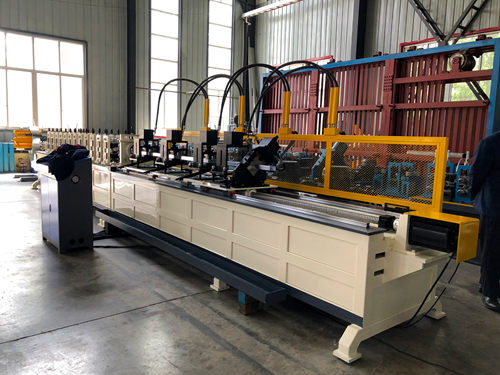
Understanding Steel Tube Mills An Essential Industry Component
Steel tube mills are critical facilities in the manufacturing industry, responsible for producing high-quality steel tubes used in a myriad of applications. These mills utilize advanced technologies and robust processes to transform steel coils into various forms of tubes, which are essential in construction, automotive, aerospace, and numerous other sectors.
The Process of Steel Tube Production
The production of steel tubes primarily involves two key processes welding and seamless tube manufacturing. In the case of welded tubes, the process begins with the delivery of steel coils to the mill, where they are unrolled, flattened, and cut into manageable lengths. These flat strips are then passed through a series of rollers and are gradually formed into a tubular shape. The edges of the strip are then heated using high-frequency induction welding, followed by cooling. This method is favored for its efficiency and cost-effectiveness, making it ideal for a variety of structural applications.
On the other hand, seamless tubes are produced through a different method, typically involving the extrusion process. Hot steel billets are heated and then pierced to form a hollow tube, which is subsequently elongated and reduced in diameter through a series of rotary piercing mills and elongating mills. This process results in tubes with superior strength and uniformity, making them suitable for stringent applications, such as oil and gas transportation.
Applications of Steel Tubes
The applications of steel tubes are vast and diverse. In the construction industry, they are commonly used for structural purposes, including beams and columns. The automotive sector relies heavily on steel tubes for chassis and safety components, where strength and durability are paramount. In the aerospace industry, steel tubes are utilized in aircraft manufacturing, where lightweight yet strong materials are essential.

Additionally, steel tubes are integral to the energy sector, particularly in the transportation of oil and gas. Their robust nature ensures they can withstand high pressures and extreme temperatures, making them ideal for pipeline applications. Furthermore, the plumbing and HVAC industries use galvanized steel tubes for water supply and heating systems due to their resistance to corrosion and long lifespan.
Innovations and Sustainability in Steel Tube Mills
As environmental concerns become increasingly prominent, steel tube mills are actively seeking ways to minimize their ecological footprint. Innovations such as electric arc furnaces, which recycle scrap steel and significantly reduce carbon emissions, are becoming more common. Moreover, advancements in manufacturing techniques aim to produce tubes with reduced material waste and energy consumption.
Additionally, the push for sustainability is inspiring the development of new types of steel tubes, such as those coated with eco-friendly materials that enhance corrosion resistance without harming the environment. These innovations not only help companies comply with stringent regulations but also meet the demands of environmentally conscious consumers.
Conclusion
In conclusion, steel tube mills play a vital role in the global manufacturing landscape. Through innovative production techniques and a commitment to sustainability, these facilities continue to produce essential components that underpin numerous industries. As technology evolves and societal demands shift, the steel tube mill industry is poised to adapt and thrive, ensuring its relevance for years to come. The combination of strength, versatility, and continuous improvement makes steel tubes an indispensable part of modern engineering and construction.